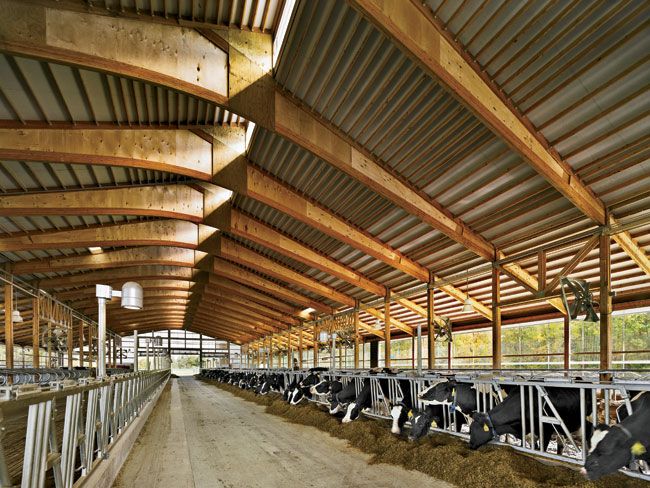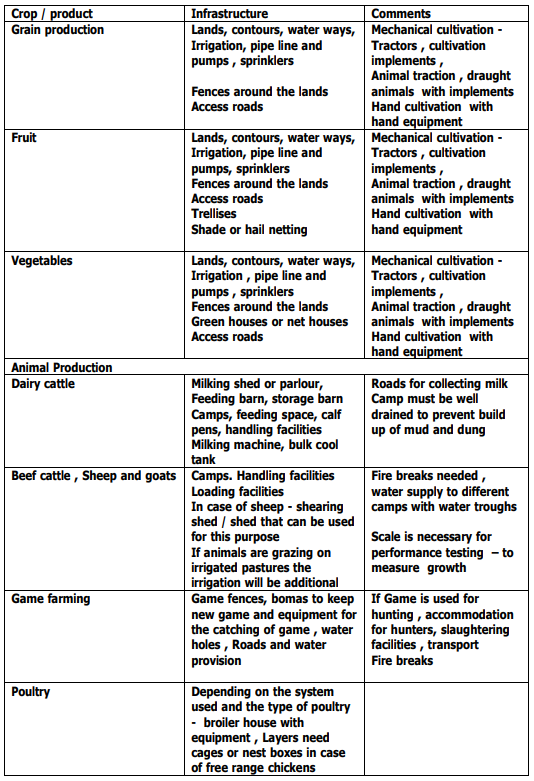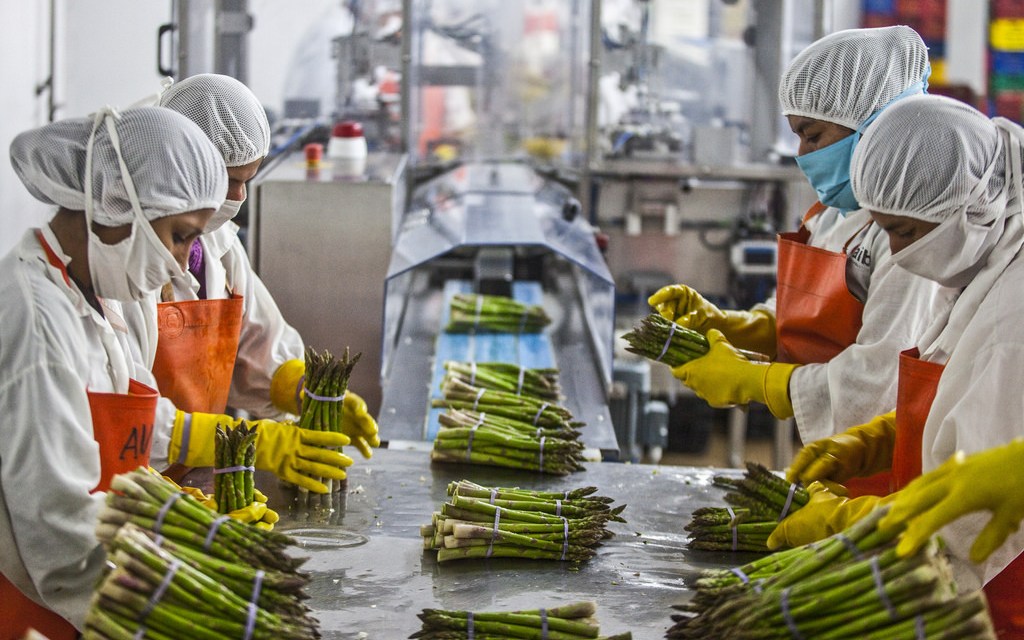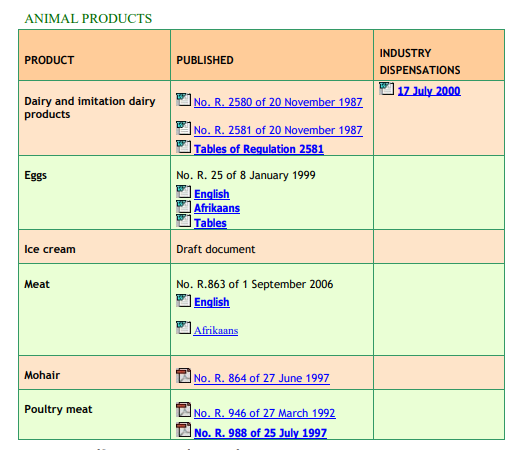Production or on-farm Production Infrastructure
This will include all the facilities or infrastructures that will be needed for the production of the different commodities on the farm. The type of infrastructure will differ from farm to farm according to the products produced, the agroecological region where the farm is situated, the topography of the farm and the financial position of the farmer and his/her personal choice.

Basic facilities need to be in place for the production of different commodities and as the quality and quantity of the product or production increases and with that, the quality of management, the facilities will also improve.

On-farm Processing Facilities
Where value is added to the product by means of sorting and packaging on the farm, provision must be made for the correct infrastructure. Products such as potatoes, tomatoes and onions are normally packed on the farm. After harvesting it is normally washed, sorted for size or damaged products and packed into the appropriate packaging. To be able to do this there must be washing facilities, sorting lines and packaging facilities. Provision must also be made for the needs of the workers - ablution facilities and a place to eat. Most of the products are placed on pallets for easier handling. A Forklift is essential to assist with the loading of the pallets onto the vehicles that will transport them to the market.
Agro-Processing
Where the products are not processed on the farm, the facilities must be available to transport it to the nearest processing or collection point. Roads play a vital role in the transportation process, therefore the condition of the roads will affect the quality of the products - eliminate bruises. In the case of grain, care must be taken to reduce or prevent wastage or spillage.
Milk must be transported in cool tankers where the quality of the milk must be ensured; the temperature must remain cold enough to prevent bacteria from multiplying. Vegetables, flowers and fruit are also products that must be kept cold, and the cold chain must be maintained at all times.
Processing facilities can be a wide range of different facilities, from a silo to store the grain, a factory that cans vegetables or fruit, a packhouse to store fruit and a milk processing plant\factory.

Other facilities that will play a role in the marketing of agricultural products are:
- Wholesale markets and trading centres
- Information and communication facilities
- Farm to market infrastructure
Regulations and legislation regarding natural sources and infrastructure:
A farming enterprise is evaluated according to certain regulations and legislations. Appropriate adjustments must be made and implemented to comply with these regulations and legislations.
There are several legislations that play a role in the provision of facilities and infrastructure, depending on the type of product that is produced.
Soil conservation and the conservation of natural resources are also regulated by rules and regulations. These are necessary as they prevent the deterioration of natural resources and the negative effect that development may have on e.g., vlei-lands or any other sensitive area.
Animal health and safety act: - regulates Biosecurity, animal health and hygiene, the transportation of animals and animal products. Food Safety and Quality act: - regulates the fresh produce markets to ensure that the produce is of the best possible quality the municipalities will play a role in the marketing of fresh produce.
Hygiene is of crucial importance in sectors such as dairy, abattoirs or other on-farm processing facilities. Regulations, concerning the export of products to foreign countries such as Europe, the USA and U.K. are also in place.
Factors Affecting Infrastructure
The infrastructure on the farm will depend largely on the following:
- The type of product produced and the production process.
- The topography of the farm is playing a role in the design of the buildings, contours, waterways etc.
- The financial position of the farmer. Unfortunately, if the farmer is battling to make ends meet he/she will not spend money on infrastructure. Only when sufficient funds are available will he/she start to spend on improving the infrastructure.
- The history of the farming unit and its age will influence the state of development. Farmers, starting from scratch, may start with a development plan to get the facilities in place, as the development of the farm takes place over time and as funds are available.
- The needs of the products produced is also a determining factor.
Legislation that Plays a Role in Infrastructure
The following legislations are of importance regarding the infrastructure on a farm. Information of these acts can be obtained from the National Department of Agriculture (NDA) web page:
- Soil Conservation Act
- Protection of Livestock act
- Water legislation - can be found on the website of the Department of water affairs and forestry – www.dwaf.gov.za
- Legislation such as the Groundwater resource assessment and management (GRAM) and NGIS regulations
- Legislation regarding hygiene at dairies, abattoirs and food processing plants:

(Source: www.nda.gov.za)
- Provincial and municipal regulations regarding buildings and structures.
- Regulations regulating the transport of livestock.
- Export and quality regulations both local and overseas can also be obtained from the NDA website. (Select the regulations applicable to your industry)